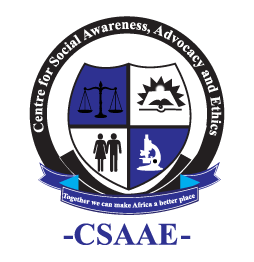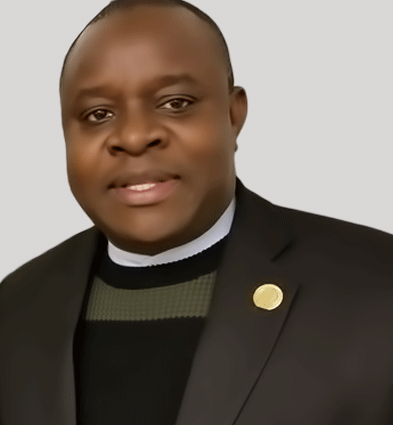On August 17, 2020, the Centre for Social Awareness, Advocacy and Ethics (CSAAE) was recently approved as an organization in special Consultative Status with the Economic and Social Council of the United Nations. This status allows the organization to actively engage with ECOSOC and its subsidiary bodies, as well as with the United Nations Secretariat, programmes, funds and agencies in several of ways.
The statement reads, “Follow-up to the decision of the Economic and Social Council, I am pleased to inform you that on 24 June 2020, the Economic and Social Council (ECOSOC) adopted the recommendation of the Committee on Non-Governmental Organizations (NGOs) to grant special consultative status to your organization, Centre For Social Awareness, Advocacy and Ethics Incorporated.”
“Please accept our heartfelt congratulations. Consultative status for an organization enables it to actively engage with ECOSOC and its subsidiary bodies, as well as with the United Nations Secretariat, programmes, funds and agencies in a number of ways,” the letter read.
With this new portfolio, CSAAE is priviledged to relate with the UN within 6 stances. First, arrangement for consultations with NGOs are regulated by ECOSOC. CSAAE could be sought for expert information within its competence in a subject matter.
Second, consultative status also enables CSAAE to appoint official representatives to attend meetings and access to the United Nations both at the Headquarter in New York as well as other offices in Geneva and Vienna. The representatives are expected to register and participate in events, conferences and activities of the UN. Organizations in both general and special consultative status may designate authorized representatives to sit as observers at public meetings of ECOSOC and its subsidiary bodies, the Human Rights Council and, under certain conditions the General Assembly and other United Nations intergovernmental bodies.
The specified representatives would personally collect their grounds passes in New York, Geneva and Vienna. The organization would also ensure that the information and email address submitted will enable free flow of valuable correspondences.
Third, organizations both in general and special consultative status are free to submit statements on issues which are important to the Council in which the organizations have competence. These statements could be written in English or French. And should be submitted within a specified time to give room for proper consultations between the Secretary-General and the organizations prior to circulation. For organizations in general consultative status they are limited to a maximum written statement of 2000 words while those in special consultative status to 500 words.
Fourth, under the oral presentations at ECOSOC, the committee on NGOs makes recommendation on which organizations on both consultative status are to make oral presentation which is also subject to the approval of the Council.
Fifth, consultations with ECOSOC and its subsidiary bodies entail that Commissions and other subsidiary bodies of ECOSOC may consult with NGOs in general and special status. And such consultations may be arranged at the request of the NGO. A commission of ECOSOC may recommend that an NGO with special competence in a particular field undertake studies or investigations or prepare papers for the commission. NGOs can consult officers of the appropriate offices of the Secretariat on matters of mutual interest or concern at the request of the NGO or prompted by the Secretary-General. Also the Secretary–General may request the organizations in consultative status to carry out studies or prepare papers.
Lastly, the NGOs in consultative status are permitted to use the facilities of the United Nations according to specifications which include: accommodation, seating arrangements, arrangement of informal discussion, access to UN’s press documentation service and use of UN’s libraries amongst other things.
However, CSAAE’s responsibilities and obligations to the UN include, to submit a quadrennial report which consists of its activities in support of the work of ECOSOC and the UN every 4 years. NGOs with consultative status should not relax after the submission of the quadrennial report but should keep records of participation in events, funds and agencies of the UN for subsequent reports.
Recall that from 2018 to 2020, CSAAE represented African Civil Societies at the World Bank and IMF Civil Societies Policy Forum Working Group. Here, CSAAE’s executive director was actively involved in planning the CSPF at the annual and spring meetings in Washington D.C.
By Sr. Roseline Reuben
Communications Manager, CSAAE


